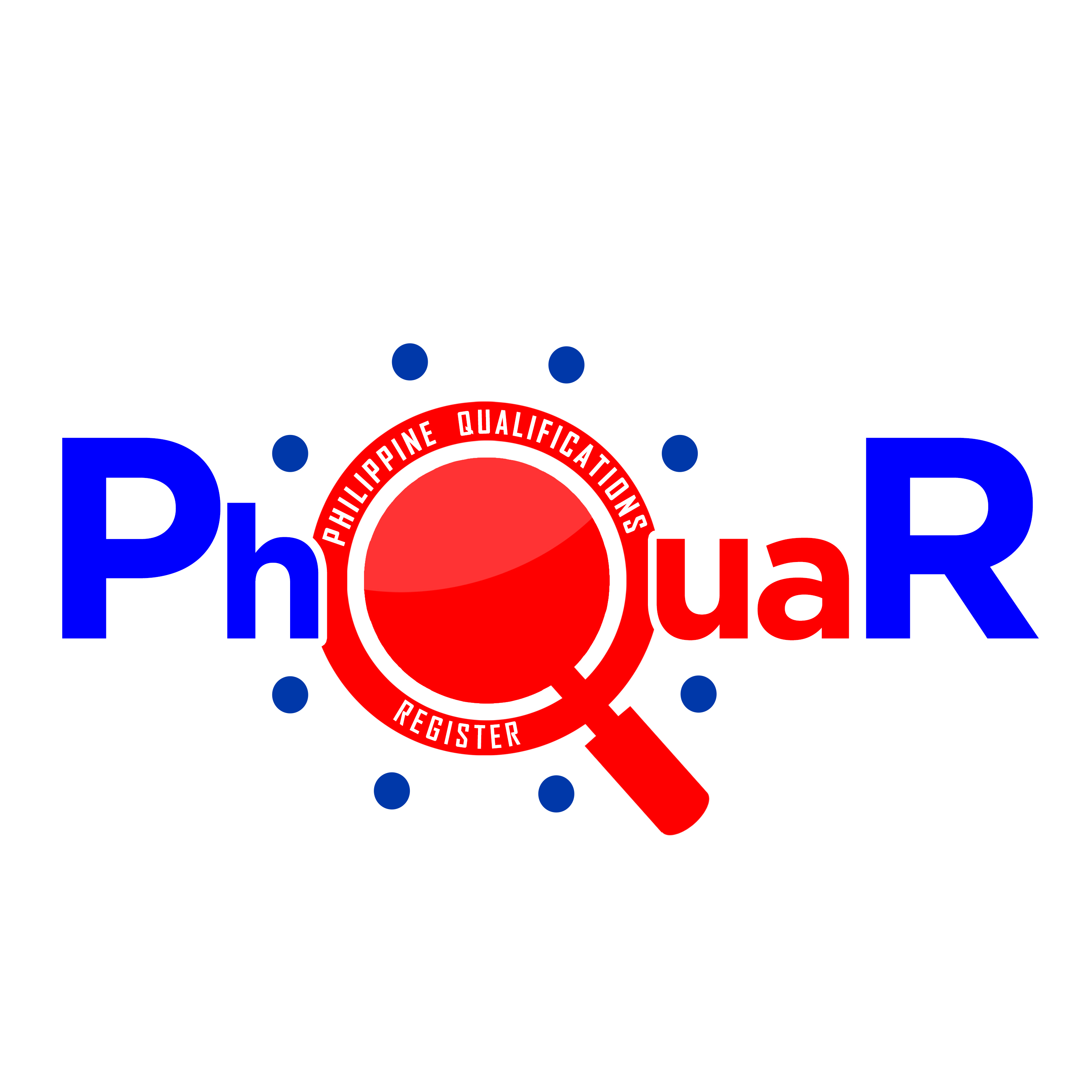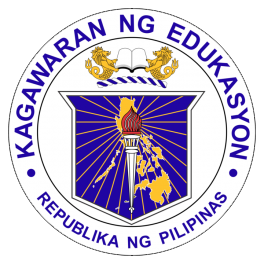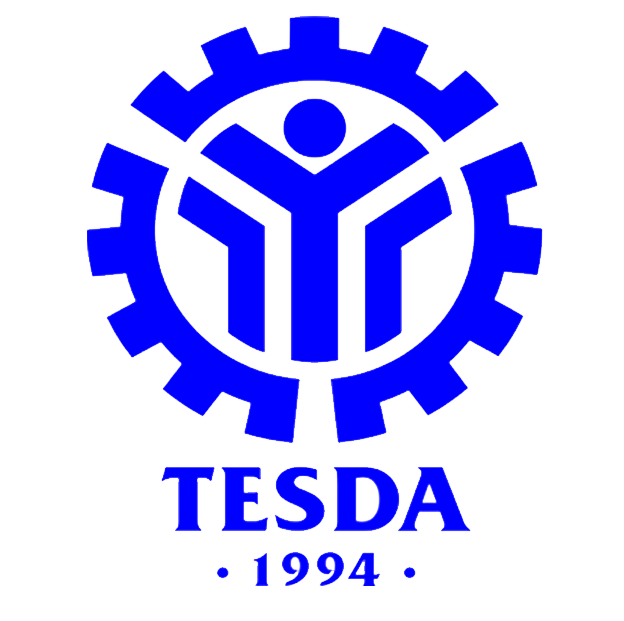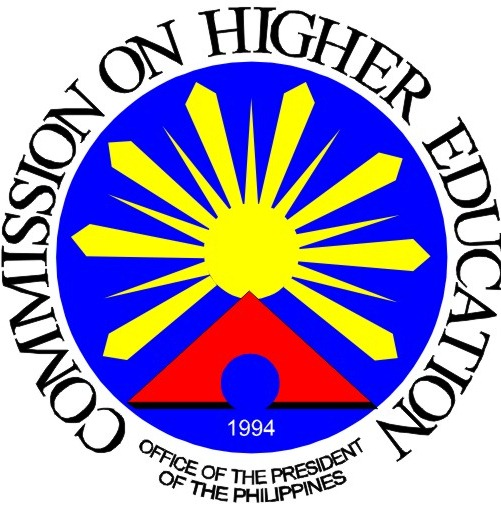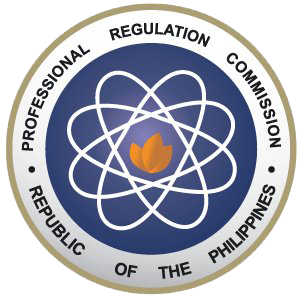Register of Qualifications
Search Qualifications
| Qualification Code | Qualifications | Descriptor | Level | Authority Granting Agency |
Instrument (PSG/CMO/Board Resolution) |
Date of Authorization |
|---|---|---|---|---|---|---|
| 60914 | Bachelor of Science in Medical Technology / Bachelor of Science in Medical Laboratory Science | The BACHELOR OF SCIENCE IN MEDICAL TECHNOLOGY/BACHELOR OF SCIENCE IN MEDICAL LABORATORY SCIENCE is a four (4)-year program consisting of general education and professional courses. The fourth year level is the internship program of year in a CHED-accredited training laboratory with rotational duties in different sections of the laboratory. The program aims to produce graduates who possess the knowledge, skills, professional attitude, and values in the performance of clinical laboratory procedures needed to help the physician in the proper diagnosis, treatment, prognosis, and prevention of diseases. Graduates of the program should be able to: 1) Demonstrate technical competence in the performance of clinical laboratory tests in aid of diagnosis, treatment, and management of diseases vis-à-vis biosafety and waste management. 2) Demonstrate analytical and critical thinking skills in the workplace. 3) Engage in the collection, analysis, and projection of health information for improving the health care management system. 4) Demonstrate inter-personal skills, leadership qualities, and ethical practice of the profession. 5) Apply research skills in relevant areas of Medical Technology/Medical Laboratory Science practice. 6) Participate in community-oriented activities. 7) Engage in life-long learning activities. 8) Demonstrate effective teaching and communication skills. 9) Practice inter-professional collaboration. 10) Take active role in social advocacies and mobilization. | VI | CHED | CMO No. 13, s. 2017 | 5/8/2017 - Present |
| 60913 | Bachelor of Science in Nursing | The BACHELOR OF SCIENCE IN NURSING is a four (4)-year program consisting of general education and professional courses. Professional courses are threaded through from the first year thru the fourth year with emphasis on the nursing concepts with corresponding Related Learning Experiences (RLE). The BSN program provides an intensive nursing practicum that will refine further the nursing competencies to ensure achievement of the BSN program outcomes required of an entry level nurse. Graduates of the program should be able to: 1) Apply knowledge of physical, social, natural and health sciences, and humanities in the practice of nursing. 2) Provide safe, appropriate and holistic care to individuals, families, population group and community utilizing nursing process. 3) Apply guidelines and principles of evidence-based practice in the delivery of care. 4) Practice nursing in accordance with existing laws, legal, ethical and moral principles. 5) Communicate effectively in speaking, writing and presenting using culturally-appropriate language. 6) Document to include reporting up-to-date client care accurately and comprehensively. 7) Work effectively in collaboration with inter-, intra- and multi-disciplinary and multi-cultural teams. 8) Practice beginning management and leadership skills in the delivery of client care using a systems approach. 9) Conduct research with an experienced researcher. 10) Engage in lifelong learning with a passion to keep current with national and global developments in general, and nursing and health developments in particular. 11) Demonstrate responsible citizenship and pride of being a Filipino. 12) Apply techno-intelligent care systems and processes in health care delivery. 13) Adopt the nursing core values in the practice of the profession. 14) Apply entrepreneurial skills in the delivery of nursing care. 15) Act as an advocate/mobilizer. | VI | CHED | CMO No. 15, s. 2017 | 5/8/2017 - Present |
| 60915 | Bachelor of Science in Nutrition and Dietetics | The BACHELOR OF SCIENCE IN NUTRITION AND DIETETICS is a four (4)-year program consisting of general education and professional courses. The fourth year is devoted to field practice in hospital dietetics, foodservice, and community nutrition/public health nutrition. Graduates of the program should be able to: 1) Apply theoretical knowledge and technical skills. 2) Apply nutrition care process in various settings. 3) Demonstarte interpersonal skills and leadership in the practice of BSND profession. 4) Skills in judgment, problem-solving and decision-making to analyze results. 5) Ability to conduct research and community-oriented activities. 6) Engage in life-long learning activities. 7) Effective oral and written communication skills. | VI | CHED | CMO No. 14, s. 2017 | 5/8/2017 - Present |
| 60915 | Bachelor of Science in Occupational Therapy | The BACHELOR OF SCIENCE IN OCCUPATIONAL THERAPY is a program consisting of general education, basic sciences; clinical and professional courses. The last year level is the fieldwork program that involves placement of students to different affiliation centers. Graduates of the program should be able to: 1) Synthesize and utilize knowledge of health, social, psycho-social, occupational science, physical, natural and environmental sciences to the practice of occupational therapy. 2) Utilize occupational therapy foundations and concepts in assessment/evaluation and intervention in arious occupational therapy practice settings and across lifespan within a broad continuum of care. 3) Demonstrate beginning management and leadership skills and roles in various occupational therapy practice settings. 4) Demonstrate beginning research-related skills in the performance of various roles, to use in best OT practices for quality outcomes. 5) Engage actively in the advocacies of the OT profession and its stakeholders, to respond to the occupational needs of society. 6) Promote community health and well-being in the practice of the profession and community mobilization.7) Recognize the need for, and engage in, lifelong learning activities, for personal and/or continuing professional development. 8) Work collaboratively, and effectively, with clients and/or in a team of inter-professional practice settings. 9) Demonstrate proficiency in oral and written communication skills, for inter-professional education and for educating an individual client or population. 10) Demonstrate social, professional responsibility and accountability; and high standards of OT ethical practice and behaviours in all settings and situations. | VI | CHED | CMO No. 52, s. 2017 | 5/31/2017 - Present |
| 60915 | Bachelor of Science in Physical Therapy | The BACHELOR OF SCIENCE IN PHYSICAL THERAPY is a four (4)-year degree program consisting of general education and professional courses. It also includes an internship program that involves assigning students to different CHED-accredited affiliation centers that cater to various patient/client populations for a minimum of 1500 hours. Graduates of the program should be able to: 1) Apply knowledge of physical sciences, social sciences, health sciences and natural sciences to the practice of physical therapy. 2) Demonstrate consistent competence in conducting a comprehensive examination, evaluation, and assessment of patients/clients across the lifespan within a broad continuum of care. 3) Demonstrate consistent competence in planning and implementing appropriate physical therapy interventions for patients/clients across the lifespan within a broad continuum of care. 4) Apply teaching-learning principles in different learning environments. 5) Practice beginning management and leadership skills in various practice settings. 6) Demonstrate research-related skills in the application of best practice evidence in the performance of various roles in different practice settings. 7) Promote health and improved quality of life through the practice of the profession. 8) Actively engage in lifelong learning activities. 9) Work effectively in an inter-professional collaborative setting. 10) Demonstrate proficiency in oral and written communication skills as well as reading and listening. 11) Demonstrate social and professional responsibility and ethical behaviors in multi-cultural settings and scenarios.12) Maximize the use of innovative technology in the practice of the profession. | VI | CHED | CMO No. 55, s. 2017 | 6/5/2017 - Present |
| 60915 | Bachelor of Science in Respiratory Therapy | The BACHELOR OF SCIENCE IN RESPIRATORY THERAPY is a four (4)-year program consisting of general health education and professional courses. The fourth year level is a one thousand six hundred (1600) hours of clinical internship program in a CHED-DOH accredited training respiratory laboratory with rotational duties in different sections of one or more hospitals. Graduates of the program should be able to: 1) Engage in lifelong learning. 2) Effectively communicate orally and in writing using both English and Filipino. 3) Work effectively and independently in multi-disciplinary and multi-cultural teams. 4) Practice professional, social, and ethical responsibilities. 5) Appreciate “Filipino historical and cultural heritage”. 6) Practice basic supervisory skills in the management of the respiratory department. 7) Demonstrate responsible citizenship as an advocate of health wellness. 8) Demonstrate consistent competence in planning, developing, and conducting diagnostic, therapeutic, and supportive respiratory interventions. 9) Demonstrate research-related skills in the application of evidence-based practice. | VI | CHED | CMO No. 53, s. 2017 | 5/31/2017 - Present |
| 60919 | Bachelor of Science in Speech-Language Pathology | The BACHELOR OF SCIENCE IN SPEECH-LANGUAGE PATHOOGY is a four (4)-year degree program consisting of general education and professional courses which includes at least 30 units of clinical internship. The program aims to produce speech-language pathologists who are competent to fulfill professional responsibilities in different areas. Graduates of the program should be able to: 1) Demonstrate competence in the assessment of speech/language/ communication functions and limitations of clients/ patients across a life span. 2) Demonstrate competence in planning and implementing appropriate and comprehensive interventions for clients/patients across a life span. 3) Apply guidelines and principles of evidence-based practice in the delivery of SLP services. 4) Communicate proficiently in verbal and/or written forms using culturally appropriate language.5) Practice beginning administrative, management and leadership skills in the delivery of SLP services and within the entire health care continuum. 6) Participate in research process to support the sustainability and advancement of the SLP practice. 7) Collaborate effectively with clients/patients, their families and significant interventionists in various practice settings. 8) Demonstrate social responsibility by creating/conducting/ participating in Community Based Habilitation-Rehabilitation (CBHR) approaches and programs. 9) Engage in activities that aim for the advancement and improvement of SLP practice via academic teaching and/or transference of expertise and skills to other SP practitioners and/or other professionals.10) Maximize the use of innovative technology in the practice of the profession. | VI | CHED | CMO No. 59, s. 2017 | 7/19/2017 - Present |
| 60914 | Bachelor of Science in Radiologic Technology | The BACHELOR OF SCIENCE IN RADIOLOGIC TECHNOLOGY is a four (4)-year degree program consisting of general education and professional courses. The fourth year is undertaken as a Clinical Education Training Program in accredited affiliation centers. The program affords training in general radiography and the special fields of Radiology including Ultrasound, Computed Tomography, Magnetic Resonance Imaging, Mammography, Nuclear Medicine, Radiotherapy, Interventional Radiology, and other emergent fields. Graduates of the program should be able to: 1) Apply scientific knowledge, technical skills, and the proper work attitude and values necessary for the practice of Radiologic Technology. 2) Understand the scope of local and international professional ethical practice. 3) Promote the value of pursuing life-long learning. 4) Implement radiation safety and protection measures. 5) Demonstrate compassionate patient care. 6) Show beginning leadership, management, and entrepreneurial skills. 7) Engage in academic and research activities. 8) Advocate love of country and service to the Filipino people. | VI | CHED | CMO No. 07, s. 2018 | 5/25/2018 - Present |
| 60916 | Bachelor of Science in Pharmacy | The BACHELOR OF SCIENCE IN PHARMACY is a four (4)-year degree program that offers a good mix of general education courses, which have relevant applications in the profession of pharmacy, and professional courses, that will prepare the graduates in acquiring competencies necessary in the workplace. Foundation courses in pharmaceutical chemistry, pharmaceutics and the life sciences will enhance the understanding of pharmaceutical product development and their applications in pharmacy practice. It also includes an internship program in the last year that involves assigning students to different CHED-accredited affiliation establishments covering a minimum of 1,200 hours. The intern/student, during the course of the internship or supervised pharmacy practice experience, will be exposed to a variety of opportunities in practice areas that will prepare them for the different roles expected of them upon graduation. Graduates of the program should be able to: 1) Adhere to legal requirements, practice standards and code of ethics for the pharmacy profession. 2) Apply knowledge & skills of mathematics, health sciences, social sciences, psycho-social sciences, physical sciences, environmental sciences, natural sciences, information technology and other advanced technologies to the practice of pharmacy. 3) Apply suitable techniques and principles in the compounding, storage, manufacturing, distribution, administration and disposal of pharmaceutical (biologicals) products to ensure quality, safety & efficacy of products. 4) Develop a drug therapy plan appropriate for the patient based on evaluated patient’s health and medication history. 5) Provide relevant information in dispensing pharmaceutical products in accordance to practice standards. 6) Monitor the patient’s progress in achieving specific outcomes and optimize patient’s health-related quality of life. 7)Collaborate effectively with the patients and other members of the health care team in accordance to practice standards. 8) Conduct or participate in research activities in accordance to scientific research guidelines and dissemination of findings for utilization. 9) Demonstrate efficient and effective management skills in any organization. 10) Demonstrate entrepreneurial skills while ensuring patient safety. 11) Facilitate learning of selected learners for specific purposes (patients, students, peers, support staff, other health professionals).12) Communicate effectively using culturally-appropriate language. | VI | CHED | ||
| 60232 | Bachelor of Arts in English / Bachelor of Arts in English Language Studies | The courses in the BACHELOR OF ARTS IN ENGLISH/BACHELOR OF ARTS IN ENGLISH LANGUAGE STUDIES program are designed to integrate theory and practice to prepare the students for effective communication in English in diverse contexts and situations. Graduates of the program should be able to: 1) Articulate a comprehensive and contextualized view of the English language system and development. 2) Communicate in English (both oral and written) fluently, accurately, and creatively in diverse social, cultural, academic, and professional settings. 3) Facilitate English language learning in diverse social, cultural, academic, and professional settings. 4) Participate effectively in oral communication situations where language systems (phonological, morphological, syntactic, semantic) vary. 5) Produce well-written texts for various academic and professional purposes. 6) Recognize the need for and demonstrate the ability for lifelong learning. 7) Identify multi-perspectives and interrelations among texts and contexts. 8) Apply analytical and interpretive skills in the study of texts. 9) Discuss and/or create artistic forms. 10) Demonstrate research skills specific to the sub-disciplines in the humanities. 11) Use appropriate theories and methodologies critically and creatively. 12) Appraise the role of humanistic education in the formation of the human being and society. | VI | CHED | CMO No. 24, s. 2017 | 5/9//2017 - Present |
| 60232 | Batsilyer ng Sining sa Filipino | Ang mga kurso sa programang BATSILYER NG SINING SA FILIPINO ay lilinang sa kahusayan ng mga mag-aaral sa komunikasyon, malawak na kaalaman sa teorya at praktika ng wika, malikhaing pag-iisip, at mapanuring pananaliksik. Maihahanda ang mga mag-aaral sa mga sumusunod na trabaho: mananaliksik, mamamahayag, guro, kritiko, manunulat, tagasalin, editor, tagapamahala, entrepreneur, at iba pa. Ang nakapagtapos sa program ay dapat na: (Graduates of the program should be able to: 1) Nakatutukoy at nakapagpapakita ng pangangailangan sa kakayahan sa panghabambuhay na pagkatuto; 2) Nakatutukoy ng iba-ibang perspektibo at mga ugnayan ng mga teksto at konteksto; 3) Nagagamit nang angkop ang Filipino para sa mga tiyak na larang gaya ng negosyo, kalakalan, disenyo ng produkto at anunsiyo; 4) Nakagagamit ng analitikal at kritikal na mga kasanayan sa pag-aaral ng mga teksto; 5) Nakapagpapayo sa mga ahensiya o institusyon kung paanong epektibong magagamit ang Filipino para sa talastasan, kampanya, networking, at iba pa; 6) Nakapagsusulat at nakapag-eedit nang malinaw, masinop, at malawak sa Filipino, bukod sa naihahayag ang iniisip o nadarama sa malikhaing paraan; 7) Nakapagpapamalas ng kasanayan sa pananaliksik na nakatuon sa mga disiplina sa ilalim ng humanidades; 8) Nakagagamit ng angkop na mga teorya at metodolohiya sa paraang mapanuri at malikhain; 9) Nakapagsusuri ng papel ng humanistikong edukasyon sa paghubog ng tao at lipunan. | VI | CHED | CMO No. 22, s. 2017 | 5/9//2017 - Present |
| 60232 | Bachelor of Arts in Foreign Language | The BACHELOR OF ARTS IN FOREIGN LANGUAGE program is designed to prepare the students for the real-world application of the foreign language in various settings, this program is a response to the felt need in the academe to develop experts in foreign languages who can bridge cultural boundaries and help the country gain global competitiveness in the region. Graduates of the program should be able to: 1) Demonstrate functional proficiency in the Foreign Language in social, professional, academic and cultural contexts. 2) Apply different strategies of communication in the Foreign Language in various communicative contexts. 3) Demonstrate awareness and appreciation of the Foreign Language culture. 4) Recognize the need for and demonstrate the ability for lifelong learning. 5) Identify multi-perspectives and interrelations among texts and contexts. 6) Apply analytical and interpretive skills in the study of texts. 7) Discuss and/or create artistic forms. 8) Demonstrate research skills specific to the sub-disciplines in the humanities. 9) Use appropriate theories and methodologies critically and creatively. 10) Appraise the role of humanistic education in the formation of the human being and society. | VI | CHED | CMO No. 23, s. 2017 | 5/9//2017 - Present |
| 60232 | Bachelor of Arts in Literature / Bachelor of Arts in Literary and Cultural Studies | The BACHELOR OF ARTS IN LITERATURE/BACHELOR OF ARTS IN LITERARY AND CULTURAL STUDIES program is designed to develop critical thinking and imaginative expressions and innovations across languages and cultures. It has two (2) traks: Track A: Literature and Cultural Studies, Track B: Literature Across the Professions. Graduates of the program should be able to: 1) Apply close reading of texts, involving analysis and interpretation of a variety of forms, types and genres. 2) Deploy critical perspectives in the analysis and interpretation of texts representing a variety of forms, types and genres. 3) Recognize the need for and demonstrate the ability for lifelong learning. 4) Identify multi-perspectives and interrelations among texts and contexts. 5) Apply analytical and interpretive skills in the study of texts.6) Discuss and/or create artistic forms. 7) Demonstrate research skills specific to the sub-disciplines in the humanities. 8) Use appropriate theories and methodologies critically and creatively. 9) Appraise the role of humanistic education in the formation of the human being and society. In addition, graduates of the Literature and Cultural Studies track should be able to: 1) Produce a creative or critical text in one of the genres, forms or types that may be useful to Literature as a discipline as an individual or group work. 2) Categorize literary and cultural texts according to geographic areas, cultural/intercultural milieus, types, conventions, movements, and historical periods. 3) With the above-mentioned skills and competencies, plan and execute written and non-written projects for careers and undertakings anchored in the discipline of Literature in which Literature graduates are specifically considered competitive and highly qualified such as postgraduate study, research, documentation, publishing, creative work in literary genres as well as in various media, education, and work in higher education institutions. In addition, graduates of the Literature Across the Professions track should be able to: 1) Produce a non-literary text that may be useful across the professions. 2) Categorize non-literary texts produced across the professions like an advertising copy, a feature article in a newspaper or magazine, a news report and reportage, an internet blog, a legal brief, and so on. 3) With the above-mentioned skills and competencies, plan and execute written and non-written work or projects especially for first careers in which Literature graduates are broadly considered highly competitive at least for their first career, including media, advertising, marketing, administration, civil service, customer relations, BPOs, and others. | VI | CHED | CMO No. 21, s. 2017 | 5/9//2017 - Present |
| 60211 | Bachelor of Multimedia Arts | The BACHELOR OF MULTIMEDIA ARTS program is a field of interdisciplinary study geared towards creative and effective storytelling and expression through the convergence of digital media technologies, forms and practices. Graduates of the program should be able to: 1) Design multimedia projects creatively, based on a knowledge of multimedia and communication theories, aesthetic principles and approaches. 2) Critically evaluate and articulate the societal, aesthetic, communicative and ethical value of a multimedia project based on global trends and issues in multimedia technologies, design and practice. 3) Demonstrate proficiency in the visual arts required in the production of multimedia projects. 4) Demonstrate technical proficiency in the use of the appropriate technologies required in the production of multimedia projects. 5) Demonstrate professionalism and ethical behavior in the practice of multimedia in the creative industries and other community contexts. 6) Collaborate effectively in multidisciplinary and multicultural teams. 7) Recognize the need for and demonstrate the ability for lifelong learning. 8) Identify multi-perspectives and interrelations among texts and contexts. 9) Apply analytical and interpretive skills in the study of texts. 10) Discuss and/or create artistic forms. 11) Demonstrate research skills specific to the sub-disciplines in the humanities. 12) Use appropriate theories and methodologies critically and creatively. 13) Appraise the role of humanistic education in the formation of the human being and society. | VI | CHED | CMO No. 20, s. 2017 | 5/9//2017 - Present |
| 60223 | Bachelor of Arts in Philosophy | The BACHELOR OF ARTS IN PHILOSOPHY program is designed to develop critical and creative thinking, empower students with the ability to form sound value judgement; and equip students with skills necessary for research along and across multi-disciplines. Graduates of the program should be able to:1) Demonstrate critical thinking and cogent argumentation. 2) Understand and analyze and apply theories to concrete situations. 3) Evaluate judiciously the essence of philosophical learning of the True, the Good, and the Just. 4) Communicate philosophical understanding and insight within the appropriate cultural perspective. 5) Recognize the need for and demonstrate the ability for lifelong learning. 6) Identify multi-perspectives and interrelations among texts and contexts. 7) Apply analytical and interpretive skills in the study of texts. 8) Discuss and/or create artistic forms. 9) Demonstrate research skills specific to the sub-disciplines in the humanities. 10) Use appropriate theories and methodologies critically and creatively. 11) Appraise the role of humanistic education in the formation of the human being and society. | VI | CHED | CMO No. 26, s. 2017 | 5/9//2017 - Present |
Page 45 of 101
